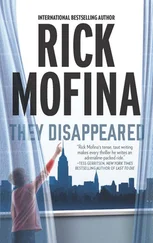Bascom looked at him, nodded and turned to leave.
“Another thing,” Dunlap said. “I figure you’re going to Louisiana to learn more.”
“I am.”
“One of the names we had for the hospital was Jan Marie Cross. You might want to start with her. She was a nurse with the team treating Remy when we delivered her there.”
“Thank you. May I ask one more favor?”
“Go ahead.”
“Would you mind letting her know, confidentially of course, as a kind of follow-up, about my family concern about Remy? Sort of let her know I’m on my way to Shreveport and need help?”
Bascom gave Dunlap his cell phone number.
“If it helps bring a family together,” Dunlap said, “I’ll consider it.”
Bascom’s work on Dunlap resulted in him having several heartfelt telephone conversations with Jan Marie Cross, a nurse at the Beau Soleil West Medical Center hospital.
With each call Bascom opened up about how things went wrong for him and his wife and their relationship with their daughter, Remy. Eventually Cross opened up about being a single mom and her teenage son’s online gambling problem and how he ran up three thousand dollars in debt on her credit card. Money she did not have. Bascom said he would give her the money for her peace of mind if she could help him with his.
That’s when Cross, who’d been extremely nervous about breaching patient confidentiality, agreed.
“You sound like a kind man,” she said. “There’s a park across the street from the hospital. Meet me there.”
So now here he was, waiting.
Bascom had followed Cross’s instructions to meet her at this time, at this bench, and to be reading a copy of the Shreveport Times.
Five minutes passed, then ten.
He knew how uneasy Cross was and how it was always a roll of the dice dealing with people in these situations. He’d gone to a bank and obtained three thousand dollars in cash from the account Hedda had established for the case.
Still, anything could happen.
While waiting at the bench, Bascom surveyed the area, noticed an older couple in the distance strolling along the grass, then a man with an eReader, before he saw a woman in her mid-forties coming toward him from the hospital. She was wearing blue scrubs, just as Cross described.
She had a plain face that was taut with concern.
“Ed?” she said.
“Yes. Jan?”
“Yes.”
Bascom set his paper aside for her to sit next to him, but she declined.
“I can’t stay long. I debated about coming.”
“I know.”
“It’s become complicated. I felt I had to see you, since you’d come this far.” She cupped her hands over her face. “I’m sorry but I can’t help you.”
“I don’t understand.”
“I thought it over and I just can’t do anything to jeopardize my job. I’m sorry.”
“Even after everything I told you about my wife and daughter, don’t you think we have a right to know? We’re family.”
“You’re not listed in her records. I can’t do this. I’m sorry. I don’t want to lose my job.”
Taken aback by her change of heart, Bascom reached into his jacket pocket for the envelope.
“I understand. Still, let me help you, Jan.”
She looked at the envelope, thick with cash.
“No, please,” she said. “I can’t”
Bascom continued holding out the envelope.
“All I can tell you, Ed, is that she was brought to us. She was stable and the baby’s heartbeat was stable, when she first arrived.”
“Then what happened? Did she have the baby? Where did they go? Did they leave any-”
“No. Please. I can’t tell you anything more. And what you’ve got, you got from the paramedics. I have to respect patient confidentiality. I’m so sorry-please forgive me.”
She turned and hurried back to the hospital.
After she was gone from view, Bascom sat there for a long moment before returning the envelope to his pocket in defeat.
He stared at his phone for several minutes as he tried to sort out how he would update Hedda. He’d tell her that Remy came to Shreveport to have the baby and so far, the trail ends here.
Soft breezes tumbled along the park, crackling the pages of his newspaper in an attempt to carry it off. Bascom grabbed it.
His attention went to a story on one of the inside pages.
It was out of Dallas and concerned a baby missing since the tornadoes hit. It highlighted how the FBI was searching for two persons of interest in the case and it was accompanied with sketches of what they might look like. They had no names and few other details.
At first, Bascom thought that the woman resembled Remy.
That couldn’t be, though.
They were from Lufkin and she’d come here to have the baby.
It’s highly unlikely, he thought, before he called Hedda. Still, to be on the safe side, he’d mention it to her.
Dallas, Texas
The Dallas County Forensic Sciences building was a three-story complex located northwest of downtown on the Stemmons Freeway.
The state-of-the-art facility contained a spectrum of sections: a ballistics testing unit, DNA, forensic biology, toxicology and autopsy labs, along with a morgue-making it one of the busiest full-service crime labs in the country.
Angela Clark, a senior forensic analyst, was the acting chief of the trace evidence section. She was in charge of leading the processing of evidence from the Tumbleweed Dreams Motel.
The FBI’s Evidence Response Team had worked the scene. They’d seized hair and fibers from Unit 21’s carpet, bathroom floor, curtains, furniture, as well as drains for the sink and tub.
The techs also lifted latents from the TV remote, door handles, the TV, the sink, toilet, mirrors, counter, tabletops, the light switches, the coffeemaker, the phone, the Bible and the Do Not Disturb sign. They’d also collected trash and linen believed to have been from the room.
The evidence had all been collected in envelopes, bags, and packets, and paper and plastic containers. The biological material they’d gathered was saved in breathable containers and allowed to dry to reduce the risk of mold contamination. All the required chain-of-custody documents had been completed with signatures, case and inventory numbers.
The case was a top priority, for the FBI and the Dallas PD.
Work at the lab had been piling up.
Angela’s boss had been seconded to work with the FBI Quantico for a month, leaving her to take on more responsibility. It also meant that, as a mother of two boys, aged ten and eight, she’d missed a few soccer games.
Adjusting her glasses, she studied her monitor and her master inventory log. She’d assigned the evidence to appropriate team members: those who were expert in analyzing hair, fibers, biological evidence, DNA and liquids.
Angela was certified in several areas. She was an expert latent fingerprint examiner. She also had two degrees in forensic science and was a PhD from Caltech. The courts had qualified her to give expert testimony on forensic matters.
Everyone had been going flat out, putting in long days.
On a personal level, many were dealing with the aftermath of the tornadoes. Angela’s neighborhood had been spared, but nearly everyone in the lab knew someone who’d lost relatives, friends or property. And now with the apparent abduction of a baby from its mother during the storm, another layer of stress had fallen on her shoulders.
Producing hard evidence from a motel was challenging at the best of times. Motel rooms were high-traffic areas. Unless you had outside evidence for which you were seeking a match, or comparative analysis, anything could be challenged in court. Still, that was not to say that you couldn’t harvest strong physical evidence to point investigators in the right direction. However, Angela and her team realized that this case also came with other unfortunate aspects. First, the motel’s security camera failed to record surveillance footage. And then, the unbelievable topper: immediately after the subjects left the room, an intoxicated dismissed employee-in an effort to get her job back-had cleaned the room, presenting the FBI’s Evidence Response Team and Angela’s team with a whole new set of problems and circumstances to deal with.
Читать дальше
Конец ознакомительного отрывка
Купить книгу












